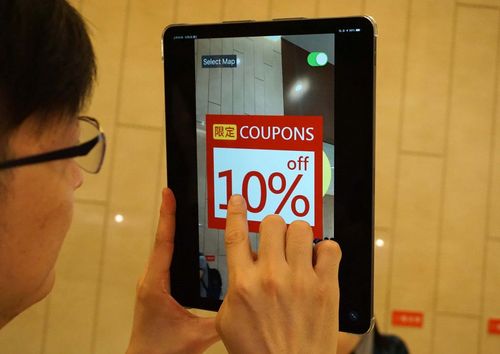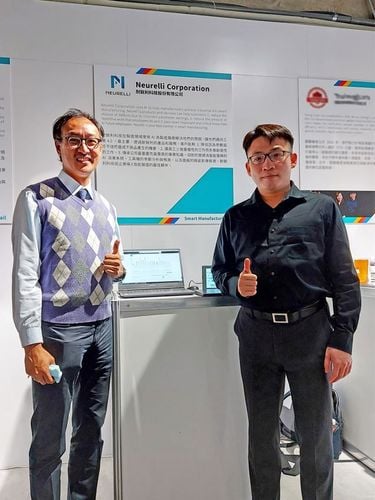【2022 Solutions】 AI Understands Marketing?! Tammy Technology's Personalized Recommendation Service Helps Fashion E-commerce Increase Conversion Rates by 3 Times
Having experienced small to medium-sized e-commerce, founders and CEO Zi-Hao Huang and co-founder and COO Yi-Ting Li of Tammy Technology decided to tackle the marketing challenges of all e-commerce personnel using AI technology. Focusing on fashion e-commerce, Tammy Technology's personalized recommendation SaaS (Software as a Service) helps small to medium enterprises tackle the rising costs of marketing and the overwhelming data, enhancing conversion rates and average order value, becoming an invaluable AI assistant in the fashion e-commerce industry.
Enhancing conversion rates has always been a major challenge for all e-commerce platforms. Unlike major players like Google and Facebook who collect browsing history to target interested messages or advertisements, smaller e-commerce businesses lack the resources and manpower to construct data analysis systems or tools.
Company Position: Marketing technology team for small and medium-sized e-commerce utilizing AI to establish automated marketing
Established in 2016, Tammy Technology initially aimed to become 'the marketing technology team for small to medium-sized e-commerce,' hoping to resolve challenges of low conversion rates and customer retention through data analysis and personalized recommendation services. 'Daniel (referring to Zi-Hao Huang) and I have both worked in small to medium e-commerce. I handled branding, marketing, and design, while he managed backend systems, project management, and development launches, almost everyone was multitasking.' Understanding the pain points of e-commerce operators, they decided to help small and medium enterprises by developing automated marketing systems and a personalized recommendation SaaS, aiding those with limited marketing resources.
▲ Through AI technology, analyze consumer purchase preferences and provide personalized recommendation services
By analyzing each consumer's purchase preferences using AI technology and storing their digital footprints in the backend for data analysis, Tammy Technology stands apart from traditional recommendation systems that categorize customers. They offer personalized product recommendations based on each individual's style preferences to achieve precise marketing objectives. Yi-Ting Li emphasizes that Tammy Technology's personalized recommendation service has two main functions: one is to make website personalized recommendations, and the second is to integrate with marketing channels such as email, SMS, and chatbots (chatbot) to send personalized promotional messages.
When consumers enter the official website, based on consumer profiles and preferences, different product recommendations can be provided on each page. Individual products also have different recommendation systems on different website pages, providing each consumer with a unique shopping experience after entering the site. Using deep learning AI technology, Tammy Technology analyzes consumer behaviors at various online shopping touchpoints through various devices, digitalizing all consumer behavioral data to build consumer profiles.
For example, a consumer with high purchasing frequency designated as VIP, whose preferences for Morandi color schemes, lace materials, high-neck styles, etc., are recorded and tagged. When browsing the store's website, the website will recommend corresponding products based on these purchase preference tags for VIP, and can also set customized discounts and pop-up windows, or send personalized messages through mobile SMS, email, etc., ensuring each customer receives discounts that fit their needs.
At this stage, Tammy Technology's client base includes male and female apparel, shoes, accessories, cosmetics, and other fashion design industries with a strong personalized color. Many clients have seen significant results after introducing personalized recommendation services. For example, Shu Uemura under the L'Oreal Paris group, specializing in high-performance skin products and trendy makeup products and professional makeup tools, experienced a significant increase in conversion rates by 3 times and a revenue increase of 1.8 times after adopting Tammy Technology's service.
Additionally, the well-known apparel business iRoo, after installing a personalized recommendation system on the official website and integrating digital marketing channels like Line and Chatbot, saw the conversion rate rise more than 5 times, with a monthly revenue increase of 21%. The pricing model is subscription-based, with large corporations being charged based on specific feature needs. The overall effect after customer usage achieves at least a 3 times increase in conversion rate, and an average of 2 times growth in average order value.
New client base ➤ After apparel and cosmetics, pushing into the home decor industry
Despite the overall increase in e-commerce sales, the personalized recommendation service has shown impressive results. However, due to the pandemic, non-essential fashion industries have been impacted. Tammy Technology, which primarily relies on the fashion design industry, saw a decrease in e-commerce performance by about 30% during the pandemic. To diversify operational risks, starting from 2022, Tammy Technology expanded its service clientele to include distinctive, quality-type home furniture and living products.
As for why not expand the client base to 3C products? Yi-Ting Li explains, 3C products focus on cost-effectiveness and brand strength, like Apple computers which have a loyal group of fans, making it challenging to sway their purchasing behavior. However, apparel, cosmetics, and home decor focus on personalization, style, and taste, like apparel with the fast, short-term 'fast fashion' trends, updating products weekly, and seasonal characteristics, updating personalized recommendations every 3-5 days; and cosmetics, including makeup and skincare, which have high customer loyalty and repurchase rates, are most suitable for recommendations and proactive discount messaging. Makeup and outfits represent personal taste, thus these two industries can complement each other in personalized recommendations.
To accelerate the process of integrating businesses with personalized recommendations, it is necessary to establish an SOP,' Yi-Ting Li continued, 'Tammy Technology, by introducing recommendation services in the fashion design industry, has constructed a service process (SOP) to facilitate rapid successful experience replication, expecting to quickly integrate into the life and home industry in the second half of the year.
New business model ➤ Establishing a new marketing model centered on the consumer
Currently, Tammy Technology's client number has exceeded 2000, including globally renowned fashion brands like L'Oreal and BLUE WAY. The future focus will remain overseas, aiming for markets like Hong Kong, Singapore, and North America. Tammy Technology, with its successful experience of integrating recommendation systems into fashion e-commerce, has gained investors' favor, securing investments from domestic and international accelerators in 2021, raising a total of 70 million New Taiwan dollars, allowing for workforce and scale expansion. Future plans include integrating investor resources to establish a new marketing model centered on consumers.

▲ Tammy Technology co-founder and COO Yi-Ting Li
「Translated content is generated by ChatGPT and is for reference only. Translation date:2024-05-19」


